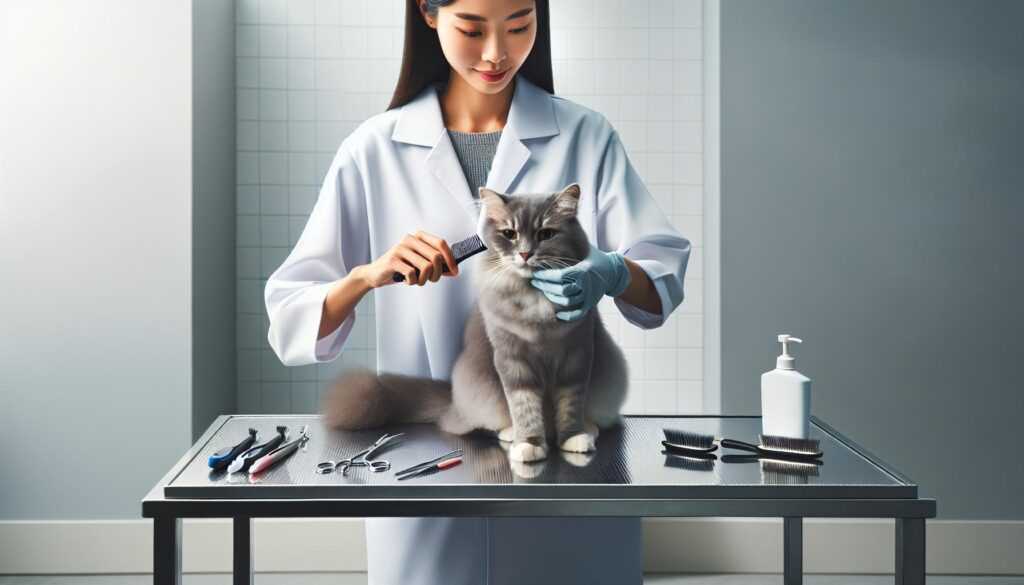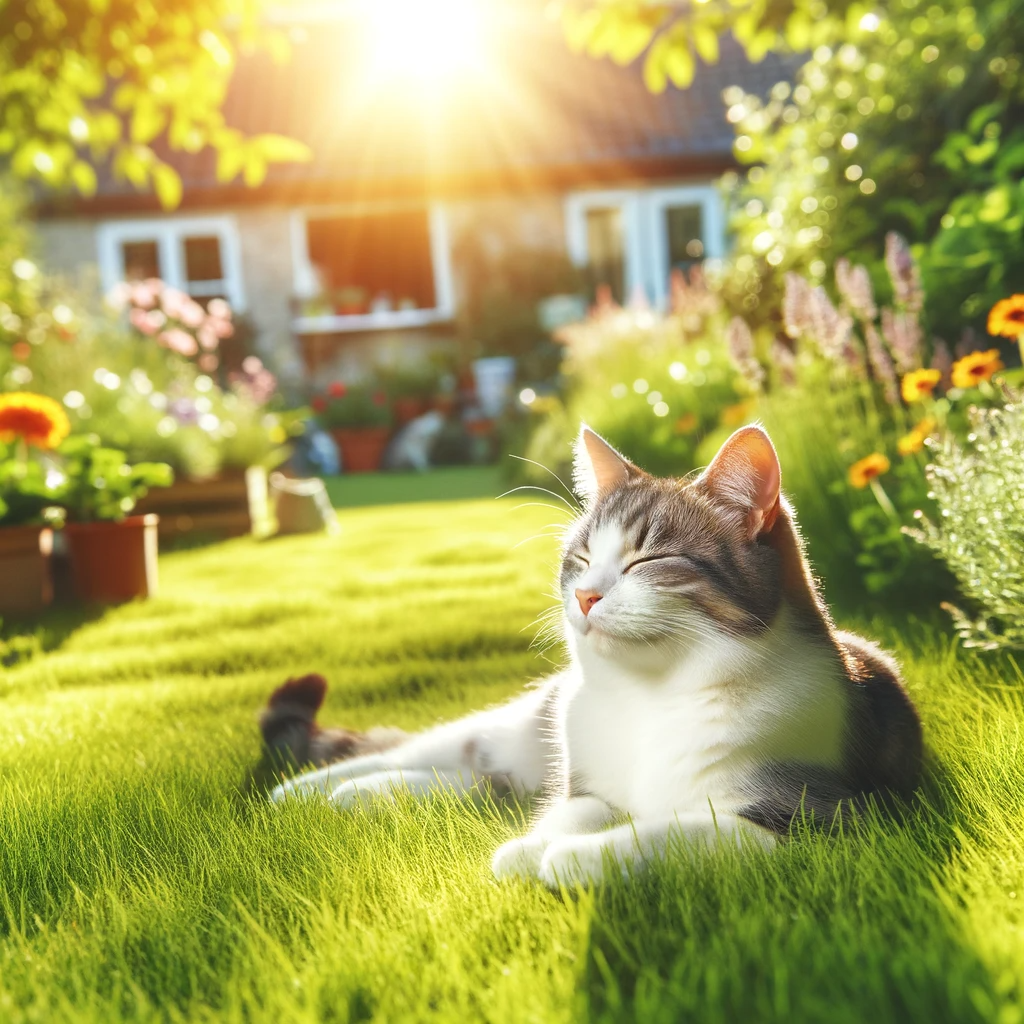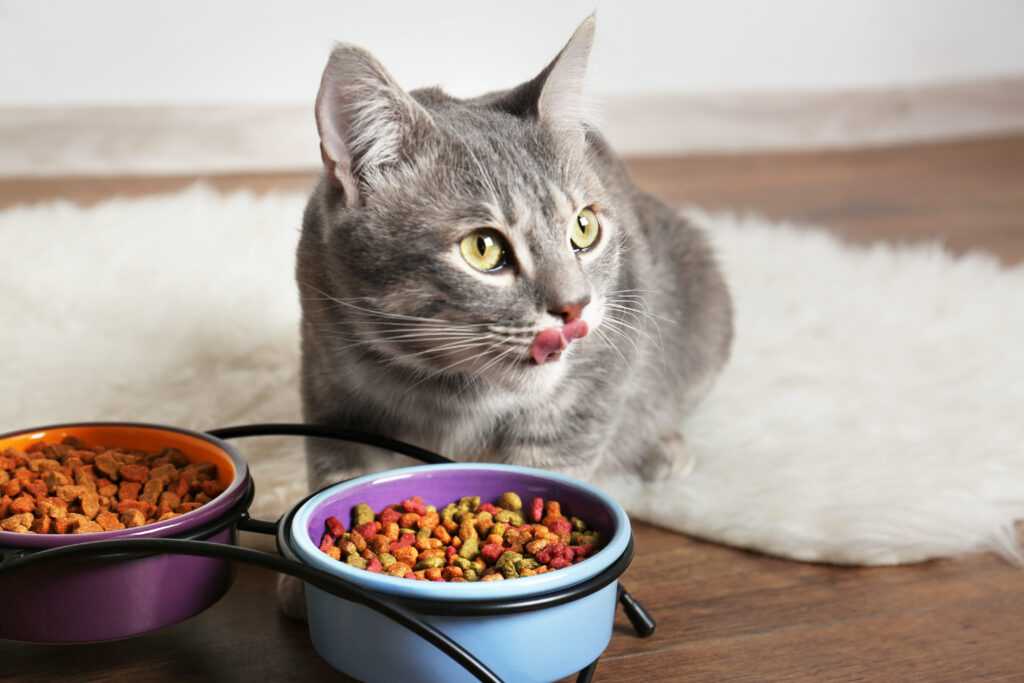
Discovering your beloved cat has lymphoma can be a heartbreaking moment, but there’s hope in the form of a tailored diet and nutrition. Diet plays a crucial role in managing a cat with lymphoma, and with the right guidance, you can make a significant difference in your cat’s quality of life.
Understanding what to feed your cat during this challenging time can feel overwhelming. Fortunately, advances in veterinary nutrition offer valuable insights into how certain foods can support your cat’s health, bolster their immune system, and potentially ease the side effects of treatment.
Importance of Diet and Nutrition in Lymphoma Treatment
When your cat is battling lymphoma, every element of their care becomes a cornerstone in their treatment plan. Notably, diet and nutrition play pivotal roles in supporting their fight against this ailment. Understanding how to adapt your cat’s diet can significantly impact their overall health and resilience during treatment.
Supporting Overall Health and Immune System
A well-thought-out diet fuels your cat’s body, bolstering their immune system which is crucial for fighting lymphoma. High-quality proteins, essential fatty acids, vitamins, and minerals all contribute to maintaining and enhancing your cat’s immune response. Foods rich in omega-3 fatty acids, for instance, have been shown to have anti-inflammatory properties which can help in countering the effects of cancer. Incorporating the right balance of these nutrients can aid in supporting your cat’s natural defences.
Managing Side Effects of Treatment
Lymphoma treatments, including chemotherapy, often come with a range of side effects that can affect your cat’s appetite and gastrointestinal health. Nutritional strategies can play a key role in managing these side effects. For example, diets that are easy to digest and palatable can encourage your cat to eat despite a decreased appetite. Moreover, specific dietary adjustments can address direct side effects such as nausea or diarrhoea, ensuring that your cat retains needed nutrients and maintains a healthy weight.
Improving Quality of Life
Beyond physical health, the right diet can significantly enhance the quality of life for cats undergoing lymphoma treatment. Nutritious, appealing meals can act as a daily enjoyment for your cat, providing comfort and promoting a sense of normalcy amidst their treatment. Additionally, maintaining a healthy weight through balanced nutrition can improve your cat’s energy levels and mobility, allowing them to engage more fully in daily activities and interactions. By focusing on your cat’s dietary needs, you’re not just nurturing their body but also their spirit during this challenging time.
Consulting Your Veterinarian
When navigating the complex terrain of lymphoma in cats, one of the pivotal steps you can take is consulting with your veterinarian. They not only offer invaluable advice and support but also guide you in tailoring a diet that aligns with your cat’s health needs. Let’s delve deeper into how you can work alongside your veterinary team to optimize your cat’s nutrition during this trying period.
Collaborating with the Veterinary Team
Initiating a dialogue with your veterinarian is crucial. They bring a wealth of knowledge and insights on how lymphoma affects your cat’s dietary needs. It’s not just about choosing the right food, but understanding how your cat’s illness, ongoing treatments, and overall health dictate their nutritional requirements. Communication is key. Don’t shy away from asking questions or expressing concerns. The more you understand, the better equipped you’ll be to make informed decisions. Remember, your vet and their team are there to support you and your furry friend every step of the way.
Creating a Nutritional Plan
Armed with knowledge and professional guidance, the next step is to craft a nutritional plan tailor-made for your cat. This isn’t a one-size-fits-all solution. Depending on factors such as the stage of lymphoma, treatment protocols, and your cat’s current health, your vet may recommend specific diets, supplements, or feeding schedules.
For instance, cats undergoing chemotherapy might need diets that are high in protein and calories to help maintain their strength. Essential fatty acids and antioxidants could also be part of the plan, aimed at supporting immune function and reducing inflammation.
Monitoring and Adjusting the Diet
Monitoring your cat’s response to the dietary changes is an ongoing process. Just as every cat is unique, so is their reaction to different foods and supplements. Regular check-ups with your vet will be necessary to assess how well the diet is working or if adjustments are necessary.
Weight changes, appetite, and overall well-being are indicators of how effective the nutritional strategy is. In some cases, what works initially may need tweaking as treatment progresses or if your cat’s condition changes. It’s a dynamic process that requires patience, observation, and, most importantly, close collaboration with your veterinary team.
Supporting your cat through lymphoma treatment with a well-thought-out diet is a proactive way to enhance their quality of life. By working closely with your veterinarian, you can navigate the complexities of nutritional needs and make informed decisions that nurture your cat’s health and wellbeing.
Dietary Recommendations for Cat with Lymphoma
When your cat is battling lymphoma, paying careful attention to their diet is crucial. Not only can the right foods support their overall well-being, but they can also play a significant role in their treatment process. Here, we’ll dive into the essential components of a supportive diet for cats with lymphoma.
High-Quality Protein
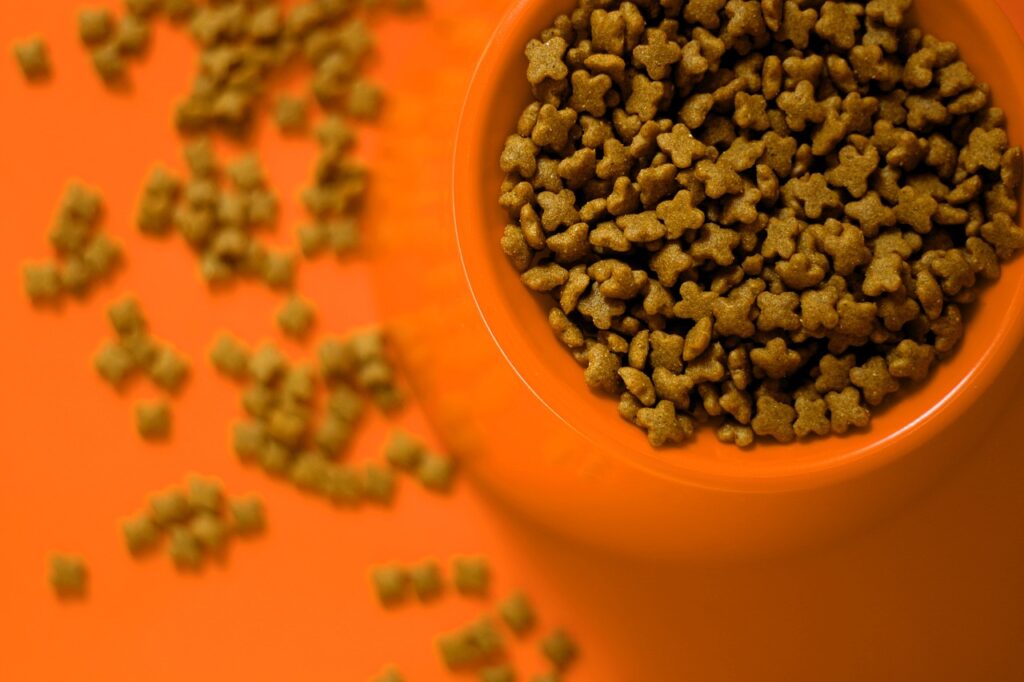
Protein is the cornerstone of any cat’s diet, but it becomes even more critical when your cat is dealing with lymphoma. High-quality protein helps in maintaining muscle mass and supporting the immune system, which is vital for a cat undergoing cancer treatment. Look for diets that are rich in proteins sourced from meat, as cats are obligate carnivores and require these proteins to thrive. Options like chicken, turkey, and fish are ideal because they’re not only high in protein but also more easily digestible for your cat.
Remember, while high in protein, the diet should not add unnecessary strain on your cat’s organs. Consult with your vet to identify the most suitable protein levels for your cat’s specific condition and treatment plan.
Balanced Nutritional Needs
Beyond protein, a balanced diet that meets all your cat’s nutritional needs is essential. This includes the right proportions of fats, carbohydrates, and fibers. Cats with lymphoma might have altered metabolism, making it crucial to adjust their diet accordingly.
- Fats provide a concentrated energy source which is especially important if your cat is less active.
- Carbohydrates should be present but in moderate amounts, considering their energy needs and any potential sensitivities.
- Fibers can help with digestive health, which is paramount as treatment might disrupt their normal digestion.
Your veterinarian can guide you in crafting a diet that aligns with these balanced nutritional principles, keeping your cat’s health and the progression of the lymphoma in consideration.
Vitamin and Mineral Supplements
Sometimes, despite your best efforts, your cat might not get all the nutrients they need from diet alone. This is where Vitamin and Mineral Supplements can play a crucial role. Specific supplements might be recommended to support your cat’s immune system and overall health during lymphoma treatment. For instance, antioxidants such as vitamins A, C, and E can combat oxidative stress, while omega-3 fatty acids from fish oil are known for their anti-inflammatory properties.
However, it’s vital not to start any supplements without discussing them with your veterinarian first. They can recommend the right supplements and dosages based on your cat’s unique health profile and needs.
By focusing on high-quality protein, ensuring a balanced diet, and incorporating the right supplements, you’re taking meaningful steps to support your cat through their lymphoma treatment. Always work closely with your vet to tailor these recommendations to your cat’s specific situation, ensuring they get the best possible nutritional support.
Specific Nutritional Considerations for Cat with Lymphoma
When your cat is facing lymphoma, understanding the nuances of their nutritional needs can make a significant difference in their overall well-being. This section dives into specific dietary adjustments that can support your cat through treatment.
High-Calorie Diets
Cats undergoing lymphoma treatment may experience a decrease in appetite, leading to weight loss and decreased energy. High-Calorie Diets are essential in these cases to help maintain their weight and support their energy needs. Look for diets that are rich in high-quality protein from sources like chicken, fish, and eggs. These not only meet their energy requirements but also help in the preservation of muscle mass. Incorporating small, frequent meals can further encourage your cat to eat, ensuring they get the calories they need to combat the disease.
Hydration
Hydration plays a pivotal role in the health of cats with lymphoma, particularly if they are undergoing chemotherapy. Chemotherapy can lead to dehydration, making it crucial to ensure your cat has constant access to fresh water. Consider adding wet food to their diet or a small amount of water or low-sodium chicken broth to their kibble to increase fluid intake. Monitoring your cat’s hydration levels and encouraging regular water consumption can aid in maintaining optimal kidney function and overall health.
Food Texture and Consistency
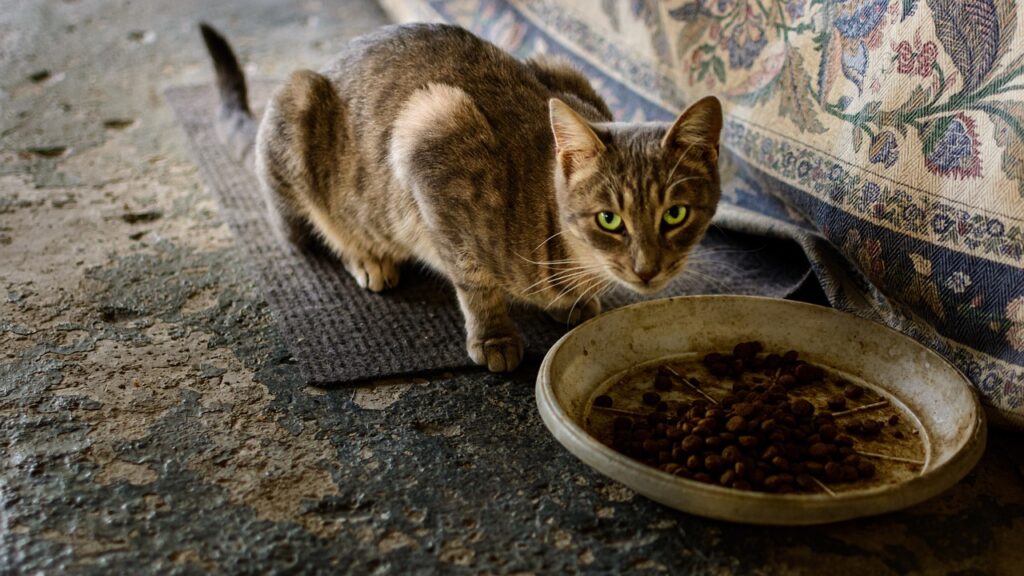
The texture and consistency of food can significantly impact a cat with lymphoma’s willingness to eat. Some cats may prefer wet food because it’s easier to consume and more aromatic, which can stimulate their appetite. On the other hand, cats experiencing mouth sores from treatment may find softer foods or even pureed diets more comfortable to eat. Experimenting with different textures and consistencies can help you discover what your cat prefers, making meal times less stressful for both of you. Remember, the goal is to keep them eating, so being flexible with food choices can be key to their recovery and quality of life.
By focusing on high-calorie diets, ensuring adequate hydration, and adjusting food texture and consistency, you can play a vital role in supporting your cat’s health during their lymphoma treatment. Regular consultations with your veterinarian are crucial to tailor these suggestions to your cat’s specific needs and treatment plan.
Homemade Diets vs. Commercial Diets
When your cat is battling lymphoma, every choice you make regarding their care is crucial. Their diet is no exception. You might be contemplating whether a homemade diet or commercial food is best for your pet. Each option has its benefits and limitations, so let’s delve into the details to help you make an informed decision.
Pros and Cons of Homemade Diets
Homemade diets provide you with the ability to fully control the ingredients and the quality of the food your cat consumes. Especially for cats with lymphoma, tailoring their diet to include high-calorie and nutrient-dense ingredients can be somewhat easier with homemade meals. Additionally, if your cat has specific dietary needs or allergies, homemade diets allow for a customized approach.
- Pros:
- Complete control over ingredients
- Customization according to health needs
- Can be tailored to your cat’s taste preferences
- Cons:
- Time-consuming to prepare
- Potential for nutritional imbalances without professional guidance
- Requires thorough research and possibly consultation with a veterinarian nutritionist
Choosing the Right Commercial Diet
Commercial diets are formulated to meet the general nutritional needs of pets at various life stages. Many brands offer prescription diets designed for cats with specific health issues, including cancer. These diets are typically formulated with the input of veterinary nutritionists and undergo rigorous quality control checks to ensure they meet certain nutritional standards.
- Pros:
- Convenient and easy to serve
- Formulated to meet nutritional standards
- Often have specific formulas designed for health issues like lymphoma
- Cons:
- Less control over specific ingredients
- Some cats may not find the taste appealing
- It’s essential to consult with your vet to choose the most appropriate formula
It’s crucial to look for commercial diets that are high in calories and nutrients, as these are vital for cats undergoing lymphoma treatment. Always check the label for quality protein sources, minimal fillers, and the right balance of vitamins and minerals. Your vet can recommend specific brands and formulas that would best support your cat’s health during this time.
Proper Feeding Techniques
Ensuring your cat eats enough while undergoing treatment for lymphoma can be challenging. Appetite loss is common, making it vital to employ strategies that encourage them to eat. Here are some techniques that can help:
- Warm the food: Slightly warming your cat’s food can make it more aromatic and appealing.
- Easy access: Ensure your cat’s feeding area is quiet, stress-free, and easily accessible.
- Small, frequent meals: Offering smaller portions more frequently can help entice cats with low appetites to eat.
Feeding a cat with lymphoma requires patience and careful observation. Monitoring your cat’s response to their diet, and making adjustments as needed, is key to supporting their health during treatment. Remember, regular consultations with your veterinarian are vital to ensure the dietary needs of your feline friend are met effectively and safely.
Feeding Cat with Lymphoma : Tips and Techniques
Frequent and Smaller Meals
When your cat is undergoing treatment for lymphoma, their appetite might fluctuate significantly. Offering Frequent and Smaller Meals can be more appealing and manageable for your cat compared to the traditional two larger meals a day. This method helps in ensuring they get the necessary nutrients without overwhelming them. It’s akin to providing constant, gentle fuel that supports their energy levels and nutritional needs without causing distress or discomfort.
Food Temperature and Palatability
The temperature and taste of the food can significantly influence your cat’s willingness to eat. Serving food at room temperature or slightly warmed can enhance its aroma and make it more tempting for your cat. However, it’s crucial to avoid serving hot food as it can lead to burns or discomfort. Experimenting with different flavours and textures can also aid in finding the most palatable option for your feline friend. Remember, a cat with lymphoma may have changing preferences, so maintaining a variety of options is key to encouraging consistent eating habits.
Feeding Methods for Cats with Difficulty Eating
Cats with lymphoma sometimes struggle with conventional eating methods due to illness or treatment side effects. In such cases, you might need to employ alternative feeding techniques to support their nutrition intake:
- Hand-feeding: Can strengthen the bond between you and your cat while encouraging them to eat.
- Syringe feeding: Useful for ensuring they receive adequate nutrition, especially when their appetite is low. It’s essential to consult with a veterinarian to learn the proper technique and amount.
- Appetite stimulants: There are medications and supplements that can help increase your cat’s desire to eat, but these should only be used under veterinary guidance.
Adopting these feeding methods can play a pivotal role in managing your cat’s lymphoma through diet. Each cat is unique, and their needs may change over time, making it essential to remain flexible and attentive to their preferences and necessities. Regularly consulting with your veterinarian can provide you with tailored advice and adjustments to your cat’s diet, ensuring they receive the best possible care and support throughout their treatment.
Common Challenges and Solutions when Feeding Cat with Lymphoma
Caring for a cat with lymphoma involves not just love and patience but also understanding the nutritional complications that come with the condition. Here’s how you can navigate some of the common feeding challenges you might encounter during this tough time.
Loss of Appetite
It’s not uncommon for cats with lymphoma to show less interest in food. This reduced appetite can stem from the disease itself or as a side effect of treatments like chemotherapy. Here are a few strategies to encourage your cat to eat:
- Warm the food slightly to enhance its aroma. Cats are driven by scent, and a warmer meal can be more appealing.
- Serve small, frequent meals instead of large ones. It can seem less daunting to your cat.
- Consider rotating food varieties to keep mealtime interesting. However, always ensure these are safe and appropriate for your cat’s health condition.
Nausea and Vomiting
Nausea and vomiting can significantly disrupt your cat’s nutrition. Here’s how to manage these symptoms:
- Consult with your vet about anti-nausea medication if vomiting becomes frequent.
- Hydration is key. Make sure your cat has continuous access to fresh water. Consider using a pet fountain to encourage more drinking, as dehydration can exacerbate nausea.
Digestive Issues
Cats with lymphoma might experience various digestive problems, including diarrhea or constipation. Managing these issues requires a careful approach:
- Fibre-rich diets can help manage both constipation and diarrhea. However, the right balance is crucial, so seek advice from your vet.
- Probiotics are beneficial for maintaining gut health. Ask your vet for recommendations tailored to your cat’s needs.
By addressing these challenges with patience and informed choices, you can significantly improve your cat’s quality of life and support their treatment journey. Remember, your vet’s guidance is invaluable in navigating your cat’s dietary needs through lymphoma treatment, ensuring they not only eat well but thrive despite their condition.
Conclusion
Supporting your cat through lymphoma treatment requires dedication and a thoughtful approach to diet and nutrition. By implementing strategies like warming their food, offering small meals throughout the day, and rotating through different food types, you’re not just feeding them; you’re nurturing their strength to fight this condition. Remember, managing side effects such as nausea and ensuring your furry friend stays hydrated are pivotal. Incorporating fibre-rich foods and probiotics can also play a significant role in easing digestive discomfort. Above all, patience and close consultation with your vet will be your best allies in this journey. Your commitment to understanding and addressing your cat’s nutritional needs can make a substantial difference in their well-being and treatment success.
Frequently Asked Questions
What is lymphoma in cats?
Lymphoma is a type of cancer that affects a cat’s lymphocytes, a form of white blood cell. It’s among the most common malignant cancers in cats, impacting various body parts, including the lymph nodes, liver, and spleen.
Why is feeding a cat with lymphoma challenging?
Feeding cats with lymphoma is challenging due to symptoms like loss of appetite, nausea, and vomiting. These make it hard for them to retain interest in food, leading to difficulty in maintaining their nutritional needs.
How can I encourage my cat with lymphoma to eat?
To encourage eating, offer warmed food to enhance its aroma, serve small, frequent meals to not overwhelm them, and rotate food varieties to pique their interest. These strategies can make mealtimes more appealing.
What should I do if my cat with lymphoma is experiencing nausea and vomiting?
For nausea and vomiting, consult with a vet for appropriate anti-nausea medication. Also, ensure your cat stays hydrated, as vomiting can lead to dehydration, impacting their overall health.
Are there specific dietary recommendations for a cat with lymphoma experiencing digestive problems?
Yes, for cats with digestive issues, a fibre-rich diet and probiotics can help. These dietary changes can support gut health and reduce discomfort, but always consult with a vet before making significant changes.
How important is vet guidance in feeding a cat with lymphoma?
Vet guidance is crucial in feeding a cat with lymphoma. They can offer professional advice on diet adjustments, medication for managing symptoms, and overall care strategies, ensuring the cat’s dietary needs are met while considering their health condition.

